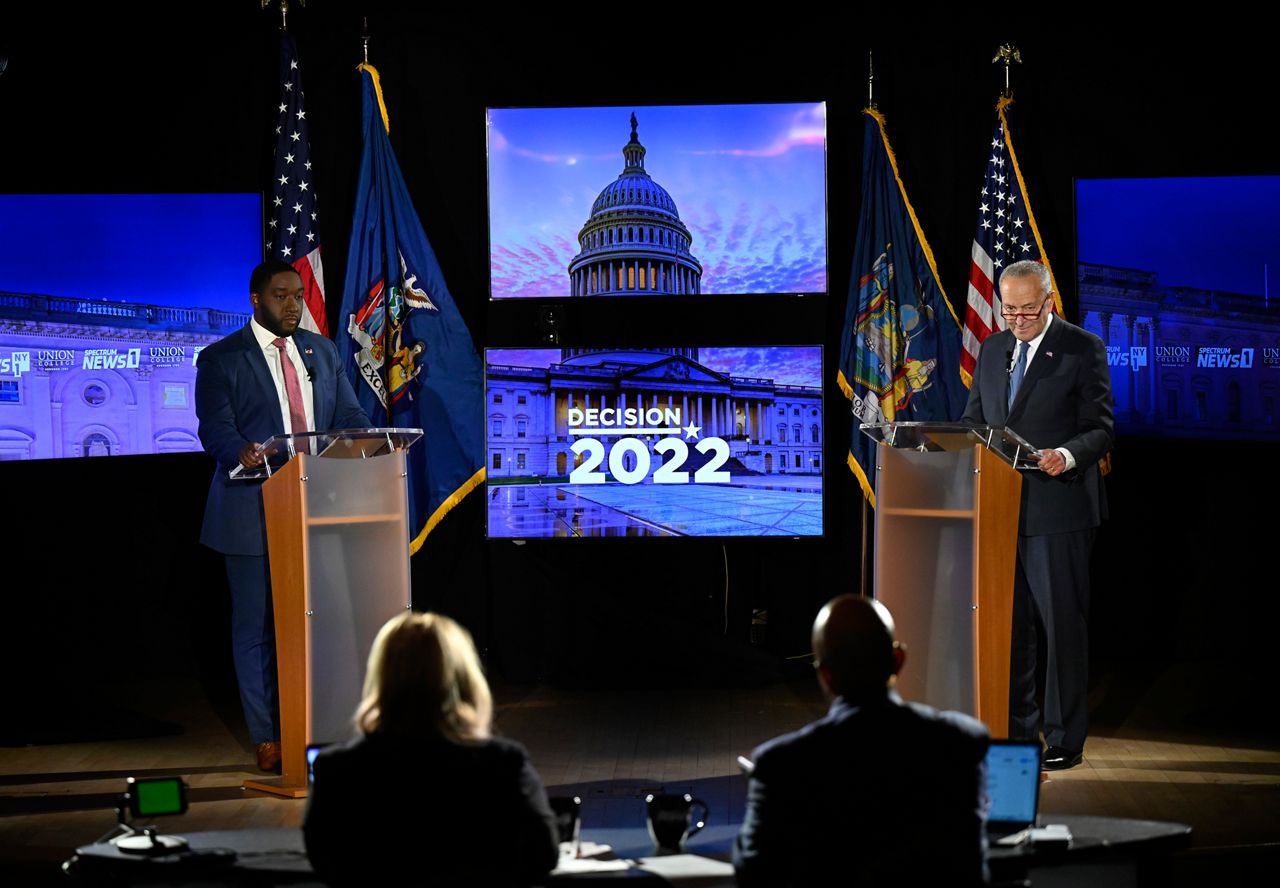NEW YORK – The difficult judicial process faced by new immigrants in the United States and the restrictions they encountered in the New York reception centers, where there are couples who have been separated because they are not married or cannot prove it, has generated a ‘ wave of marriages that some did not contemplate.
Lutheran and Episcopal priests, known for their activism in the churches that are part of the New Shrine Movement, are supporting them in order to end this separation and facilitate the immigration process.
“What worries me most and must be protected is the family,” Father Fabián Arias, of the Lutheran Church of San Pedro in Midtown, Manhattan, who today officiated at the wedding of Nathalie Quintana and Yonaiker Brujo, told EFE. they had lived together for seven years in his native Venezuela, the country where most of those arriving in New York come from, most on buses sent by Texas Governor Greg Abbott.
Nathalie, her 13-year-old son (she left three in Venezuela) and Yonaiker, along with two other relatives, crossed the US-Mexico border on October 2 and ended up in New York, like thousands of other Venezuelans who hope. find opportunities in the Big Apple to start your life over.
“BEING GOOD BEFORE GOD”
“We were going to do it in Venezuela (get married) but we had to leave,” Yonaiker told EFE after Arias’ simple ceremony in a small church office, to which Nathalie adds, “we wanted to be right in front of God.”
Nathalie explains that fear for their life led them to leave the country, after three of her brothers lost their lives on the same day during one of the many demonstrations against the government of Nicolás Maduro that took place in 2017 and provoked a total of 120 deaths.
The other brother, who managed to save his life during the protest, has left the country with his 8-year-old daughter since his wife died of leukemia five years ago, unable to receive the bone marrow transplant she had. need.
Although the ceremony does not have legal validity until the civil procedure is finished with the city, that does not prevent them from seeking asylum as a family. “Some immigration agents accept it (marriage), others don’t,” explains the Argentine priest, who even before the ceremony answered the couple’s doubts about the immigration process and where to find the help they need.
The couple, hawkers in Venezuela, do not yet have a card issued by the municipality or other identity documents or the budget to pay for the migration process.
GOING TO MARRY AT THE FRONTIER
These marriages so that immigrants are not separated when they enter the United States and can present the document when they apply for asylum as a family is a task that Arias frequently performs from the Tijuana region, on the border with Mexico, where she travels at least once a year to to do this and give them a certificate.
“The document serves not only for being together in shelters, but for other processes,” he says.
The Church of San Pedro and the Church of the Good Shepherd in Brooklyn are among a hundred temples, including mosques and synagogues, that have worked extensively to help immigrants.
The work they are doing now with the new arrivals, who have been given shelter in addition to food and clothing, is a continuation of that activism that was crucial during the pandemic, the well-known Lutheran activist and priest Juan Carlos Ruiz, of the Buen Pastor in Brooklyn, who married about 20 couples, including Colombians Lucía and Ricardo, after ten years of living together and parents of an eight-year-old girl.
“When they marry they protect each other before the law (by seeking asylum as a couple). It is a case that has more weight in the courts than independently,” says the Mexican.
The family arrived in New York on July 23 and have since been in an apartment in the city’s reception system waiting to apply for asylum after receiving death threats in their country.
“We had thought about getting married in the future, not so quickly,” says Lucía as if to justify the simplicity of a ceremony without a dress or rings.

:format(jpeg):focal(1978x904:1988x894)/cloudfront-us-east-1.images.arcpublishing.com/gfrmedia/NOC7MTT2RFEMDE5WXPXZITGFDI.jpg)
